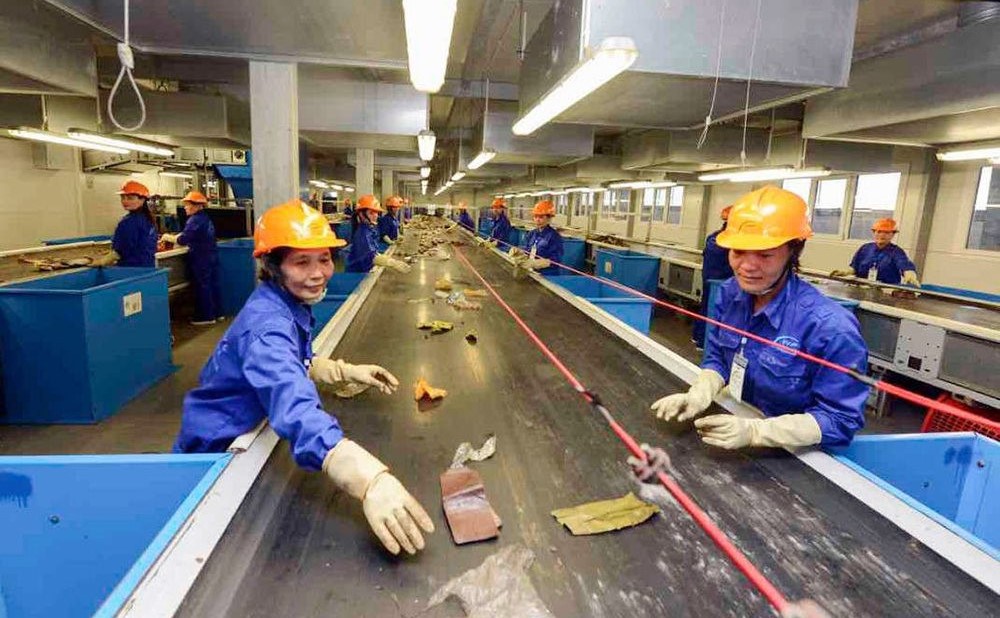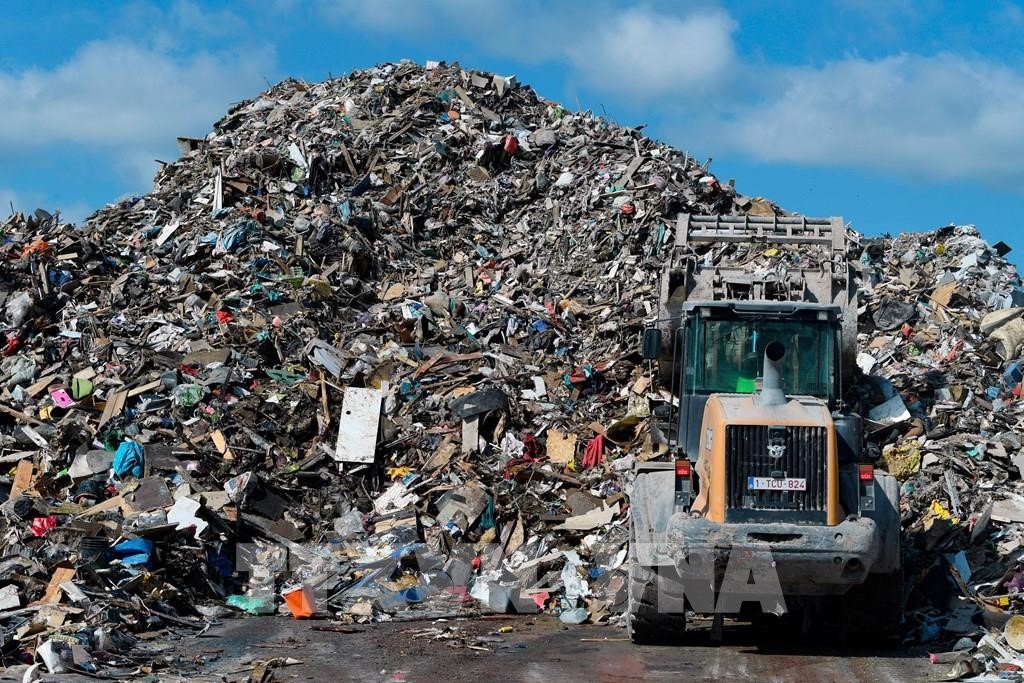November 28, 2025 | 06:04 GMT +7
November 28, 2025 | 06:04 GMT +7
Hotline: 0913.378.918
November 28, 2025 | 06:04 GMT +7
Hotline: 0913.378.918

The burden of recycling costs for paper, plastic, and metal packaging is up to VND 6,100 billion/year.
The official dispatch has just been signed by the association group and sent to the Ministry of Natural Resources and Environment and eight related ministries, including the Government Office, Ministry of Justice, Ministry of Industry and Trade, Ministry of Finance, Ministry of Agriculture and Rural Development, Ministry of Planning and Investment, Ministry of Construction, Ministry of Transport, and the Vietnam Chamber of Commerce and Industry (VCCI).
Accordingly, the American Chamber of Commerce (Amcham), along with 13 domestic associations in different fields such as food, seafood, dairy, textiles, wood, tea, automobiles, pesticides, etc., clearly stated that the draft on recycling cost norms (Fs) submitted to the Prime Minister by the Ministry of Natural Resources and Environment on July 27 has many unreasonably high Fs recycling cost norms, causing difficulties for production and business and inadequacies in implementing the recycling contribution (EPR).
The associations point out that some Fs recycling cost norms are higher than the average Fs level of 14 Western European countries, which are developed and high-cost countries. For example, the draft recycling cost of aluminum is 1.26 times higher and that of glass is 2.12 times higher. This is confusing because Vietnam's labor cost is only 10% of this region.
The main reason for unreasonably high norms is that the circular economy has not been applied to calculate Fs without deducting the recoverable value. Specifically, for the 3 types of paper, plastic, and metal packaging alone, the recycling costs to be paid are estimated at VND 6,100 billion/year, with half of it spent on supporting the recycling of high-value packaging such as metal packaging and paper cartons, while the official recycler is gaining a big profit without support.
The associations judged that in addition to many trillions of dongs in recycling costs for other types of packaging, transportation, and waste products, this is a huge cost, pushing up product prices and greatly affecting the "health" of businesses and people's lives.
Therefore, the associations proposed to adjust recycling cost norms more reasonably based on the research of the Packaging Recycling Organization Vietnam (PRO Vietnam), Vietnam's recycling practice, and the average recycling fee in the market.
To be more specific, apply a factor of 0.1 to materials with a recoverable value much higher than the recycling cost, including metal packaging (aluminum and iron) and paper packaging. This factor is instead of the factor 0.2 for aluminum and paper packaging and factor 0.4 for iron packaging in the draft. The reason is that the official recycler has gained a big profit without EPR, so contribution money should only be used to support the collection of products and packages in remote areas.
Apply a factor of 0.3 instead of 0.6 for mixed paper packaging; 0.2 for PET hard pitch and 0.3 for HDPE hard pitch instead of 0.4; 0.3 instead of 0.6 for single packaging of soft materials; 0.4 instead of 0.8 for soft multi-material packaging; 0.2 instead of 0.6 for glass packaging; and 0.15 - 0.19 for transportation.
If using these factors, the 14 associations estimate that the recycling cost for three types of paper, plastic, and metal packaging will be reduced to more than VND 3,100 billion.

In addition to recycling, waste is also a resource if it is properly exploited and used.
With the implementation of the recycling contribution (EPR), the association group proposes to change the payment method from advance payment in early 2024 to settlement according to the actual amount at the end of the year, which means to delay payment in April 2025. This aims for businesses to both fulfill their environmental responsibilities and reduce cost difficulties.
Businesses should be allowed to combine both self-recycling and paying for recycling support in the same year for the same type of discarded packaging and products, instead of being forced to choose one of the two methods as in the draft.
It is also necessary to apply an adjustment factor of 0 for packaging that uses recycled materials in Vietnam and 0.5 for environmentally friendly materials.
At the same time, clearly stipulate the recycling responsibility for accessory manufacturers; remove the export quota of no more than 20% of the volume of products on the market for some domestic products that cannot be recycled, such as lithium batteries; and recognize the co-processing method as a recycling solution.
According to the Law on Environmental Protection, starting from 2024, producers and importers must carry out their responsibility for recycling products and packaging. To do this, businesses can choose to organize the recycling of products and packaging or contribute to the Vietnam Environment Protection Fund.
When choosing a financial contribution to the fund, the amount the business must pay is calculated according to the formula F = R.V.Fs, in which F is the total amount to be paid; R is the required recycling rate for each type of product or packaging; V is the volume of products and packaging brought to the market and imported in the year of implementing recycling responsibility; and Fs is the reasonable and valid recycling cost norm.
Translated by Huyen Vu Thu

(VAN) On November 27, in the meeting with Minister Tran Duc Thang, Mayor Yin Yong shared Beijing’s experience to improve environment and air quality.

(VAN) After 30 years, both sides identified strategic areas of cooperation: sustainable production, increasing coffee value and training for farmers.
/2025/11/27/4910-4-164708_294.jpg)
(VAN) On the afternoon of November 27 in Beijing, Minister of Agriculture and Environment Tran Duc Thang held a working session with several major Chinese enterprises operating in the agriculture and environment sector.

(VAN) The Department of Animal Health issued a provisional guideline requesting local authorities to increase surveillance, collect samples for testing, and conduct epidemiological investigations according to the established procedure.

(VAN) The United Nations recommends that Vietnam utilize data and artificial intelligence to enhance early disaster warnings and reduce GDP losses by 3.2% in the context of climate change.

(VAN) On the morning of November 27 in Beijing, Minister Tran Duc Thang and the Deputy Commissioner General of the General Administration of Customs of China signed a protocol on fresh jackfruit exports.

(VAN) As floodwaters recede, a vast network of irrigation works across eastern Gia Lai is emerging in a state of severe disrepair, with extensive damage demanding urgent restoration ahead of the 2025-2026 winter-spring cropping season.